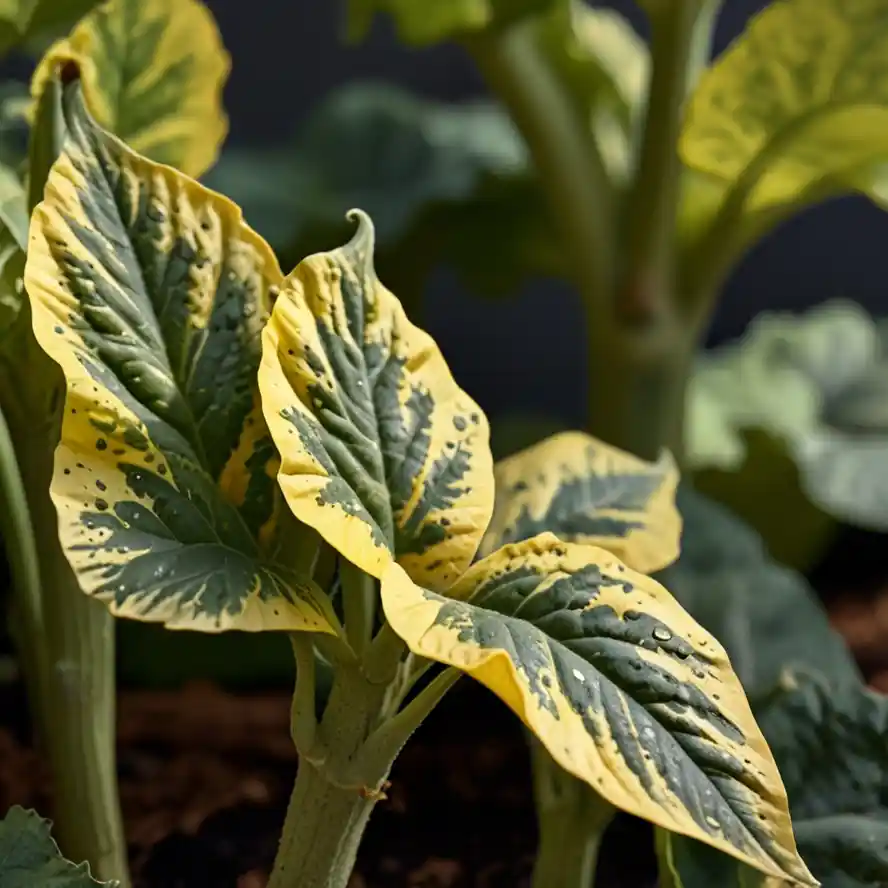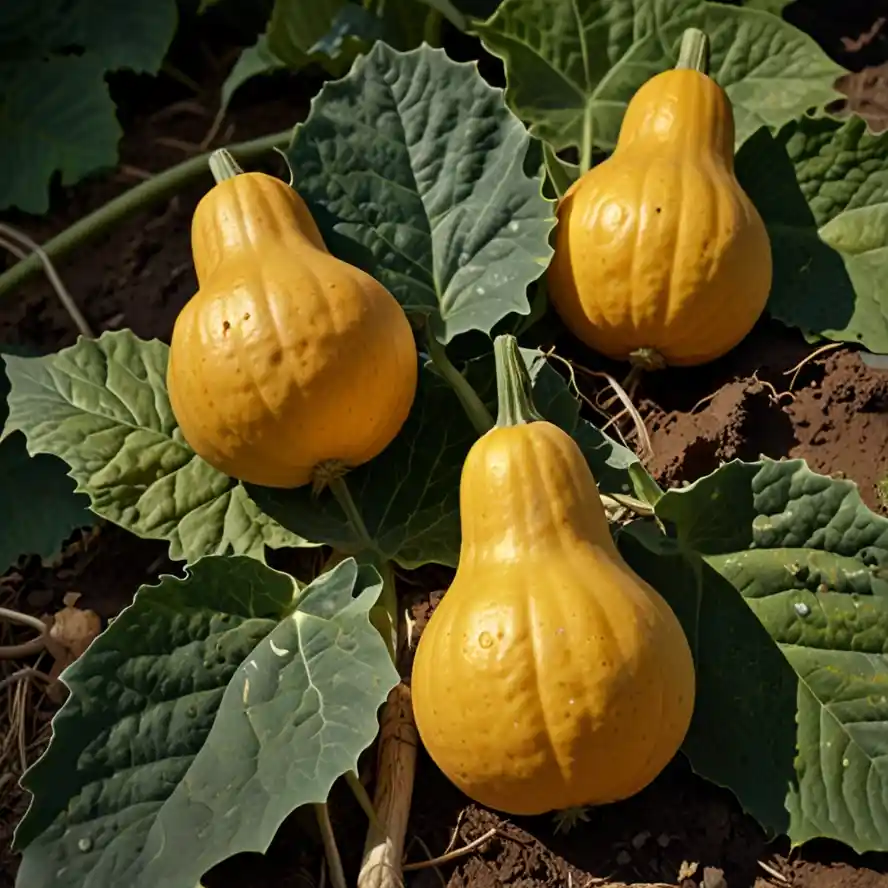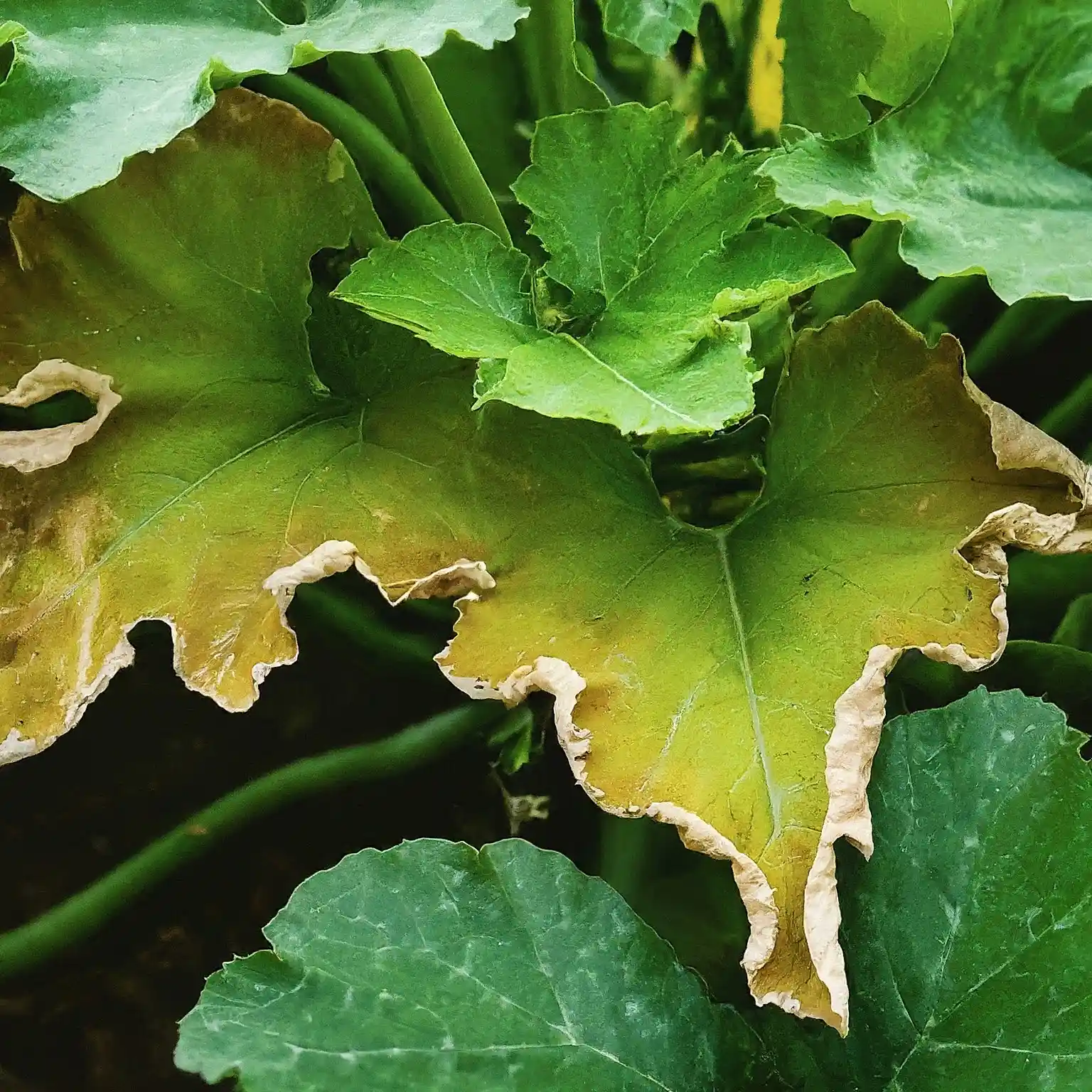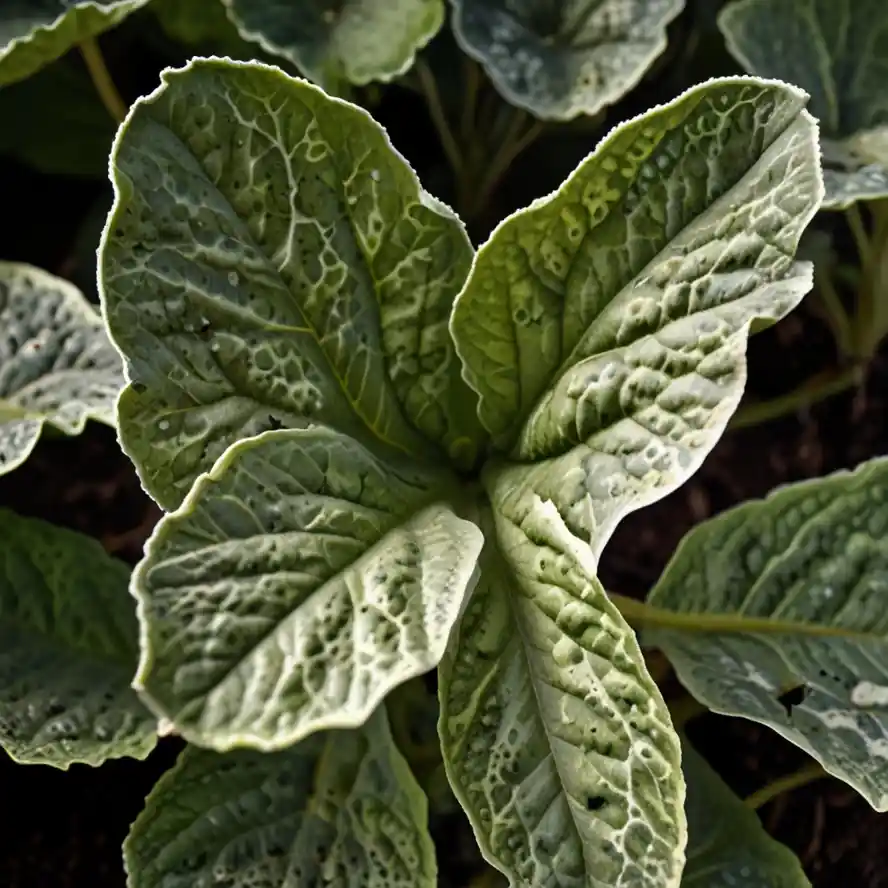
Understanding the Appearance of Squash Leaves
In this article, we will discuss the appearance of squash leaves and what they can tell you about the health of your plants. Squash plants are popular in gardens due to their delicious fruits, but it is important to understand how to care for them properly. By observing the leaves of your squash plants, you can detect potential issues early on and take the necessary steps to ensure a bountiful harvest.
Why are my squash leaves turning yellow?
If you notice that the leaves of your squash plants are turning yellow, it could be a sign of several issues. Yellowing leaves may indicate a nitrogen deficiency in the soil, poor drainage, overwatering, or even a pest infestation.
To address this problem, you can perform a soil test to check the nutrient levels and adjust your watering schedule accordingly. Additionally, inspect the leaves closely for any signs of pests such as aphids or spider mites, and treat them promptly with organic pesticides.
Properly caring for your squash plants by providing adequate nutrients, sunlight, and water will help prevent yellowing leaves and promote healthy growth.
Remember to follow a consistent fertilization schedule and monitor the soil moisture levels to ensure that your plants thrive.

What causes white spots on squash leaves?
White spots on squash leaves are often a common symptom of powdery mildew, a fungal disease that thrives in warm and humid conditions. Powdery mildew typically appears as white powdery patches on the leaves, which can eventually cause them to wilt and wither.
To prevent powdery mildew, ensure proper air circulation around your squash plants by spacing them adequately and avoiding overhead watering.
If your squash plants are already affected by powdery mildew, you can treat the disease with organic fungicides or homemade remedies such as a mixture of water and baking soda.
Regularly inspect your plants for signs of powdery mildew and take proactive measures to protect them from this common fungal infection.
How do I know if my squash plants are experiencing nutrient deficiencies?
One way to determine if your squash plants are experiencing nutrient deficiencies is by closely examining the appearance of their leaves. Different nutrient deficiencies can manifest in specific ways, such as yellowing or discolored leaves, stunted growth, or leaf curling.
For example, a lack of nitrogen may cause the leaves to turn pale green or yellow, while a magnesium deficiency may result in interveinal chlorosis.
To address nutrient deficiencies in your squash plants, you can perform a soil test to identify any imbalances and amend the soil with organic fertilizers or compost.
Maintaining healthy soil pH and nutrient levels will help prevent deficiencies and promote optimal plant growth and fruit production.

What are the common pests that affect squash leaves?
Squash plants are susceptible to various pests that can damage their leaves and fruits. Common pests that may affect squash plants include squash bugs, cucumber beetles, aphids, and spider mites. These pests feed on the plant sap, causing wilting, yellowing, and deformities in the leaves.
To prevent pest infestations, practice good garden hygiene by removing debris and weeds that attract pests.
If you notice signs of pest damage on your squash leaves, you can control the infestation with natural predators like ladybugs or by using organic insecticidal soaps. Regularly inspect your plants for pest activity and take appropriate measures to protect them from harmful insects.
Why are my squash leaves wilting?
Wilting squash leaves can be caused by various factors, including underwatering, overwatering, root rot, or extreme heat. When squash plants do not receive enough water, their leaves may wilt and appear limp due to dehydration.
Conversely, overwatering can lead to root rot, which inhibits the plant’s ability to absorb water and nutrients, resulting in wilting leaves.
To prevent wilting in squash plants, maintain a consistent watering schedule and ensure proper drainage to prevent waterlogging. Mulching around the plants can help retain moisture in the soil and regulate temperature, reducing the risk of wilting during hot weather.
Monitor your plants closely and adjust your watering practices accordingly to keep their leaves healthy and vibrant.

How can I promote healthy squash leaves?
To promote healthy squash leaves, it is essential to provide your plants with the necessary care and attention they need to thrive.
Start by selecting a sunny location with well-drained soil for planting your squash, as they require adequate sunlight and moisture to grow successfully. Avoid overcrowding the plants to ensure good air circulation and reduce the risk of fungal diseases.
Regularly inspect your squash plants for signs of pests, diseases, or nutrient deficiencies, and take prompt action to address any issues that may arise.
Follow a consistent fertilization schedule using organic fertilizers, and water your plants deeply but infrequently to encourage deep root growth. By creating optimal growing conditions for your squash plants, you can enjoy healthy foliage and a bountiful harvest.

Conclusion
In conclusion, understanding the appearance of squash leaves is essential for maintaining the health and productivity of your plants.
By closely observing the leaves for signs of discoloration, wilting, or pest damage, you can identify potential issues early on and take appropriate measures to prevent further damage. Providing your squash plants with proper nutrients, water, and sunlight will help promote healthy foliage and ensure a successful harvest.
FAQs
Can I use chemical pesticides to control pests on my squash plants?
It is recommended to use organic pesticides or natural predators to control pests on squash plants to avoid harmful chemicals that may affect the environment and beneficial insects.
How often should I water my squash plants?
Water your squash plants deeply but infrequently, allowing the soil to dry out slightly between waterings to prevent overwatering and root rot.
What should I do if my squash plants are not producing fruits?
If your squash plants are not producing fruits, ensure they are receiving sufficient sunlight, pollination, and nutrients. You can also try hand pollinating the flowers to encourage fruit set.
How do I prevent fungal diseases like powdery mildew on my squash plants?
To prevent fungal diseases like powdery mildew, ensure proper air circulation, avoid overhead watering, and treat affected plants with organic fungicides or homemade remedies.
Can I grow squash plants in containers?
Yes, you can grow squash plants in containers as long as they have enough space and drainage holes to prevent waterlogging. Use a fertile potting mix and provide adequate sunlight for optimal growth.








